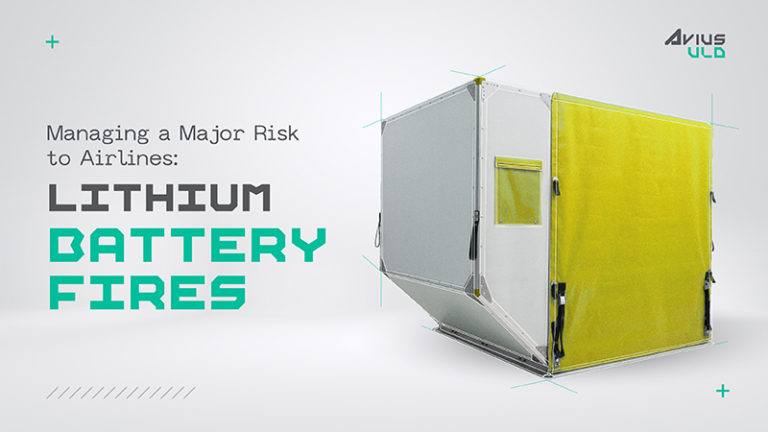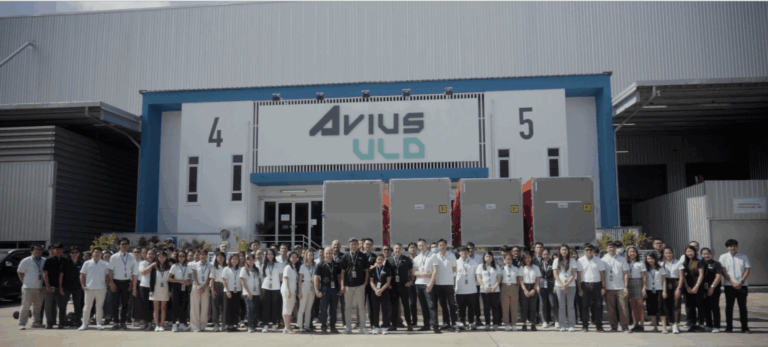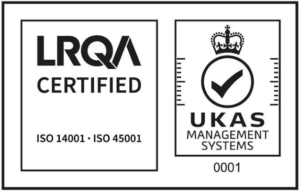The aviation industry has some of the highest safety standards and risk mitigation, however airlines face a rising risk of a danger that many are not fully prepared for. As the number of lithium-ion batteries increase in passenger luggage and air cargo, so does the particular threat that they pose if they ignite.
A growing danger
Lithium-ion batteries are found in many different devices and tools that we use every day – from cell phones to electric scooters – and are often transported via air, either for personal or commercial use. 50 million lithium batteries are brought onto aircraft daily, both by individual passengers and as bulk shipments of batteries or battery-powered devices.
Predictably, greater amounts of lithium batteries found on aircraft has led to a hike in Class D fires, with the number of lithium-ion battery fires on planes increasing by more than 42% in the past five years. As of 2023, an average of two lithium battery fires occur each week.
The danger created by lithium-ion batteries is particularly high when it comes to cargo fires. Overcharging, overheating, or any kind of failure in these batteries can result in what’s known as a thermal runaway – a chain reaction that leads to self-heating and the release of a battery’s stored energy. Lithium batteries are also unique in that they produce their own fuel, releasing a flammable vapor that allows fires to burn even without oxygen, making them extremely difficult to contain and extinguish.
Fires caused by lithium batteries can often lead to chain reactions in surrounding packages. It only takes a few battery cells to create dangerous conditions that threaten the safety of your passengers, cargo, pilot and crew. A study performed by the Federal Aviation Administration found that lithium battery fires can lead to catastrophic explosions if they spread, which cannot be fully contained by Class C cargo compartments.
Managing the risks of lithium battery fires
Despite the obvious dangers of lithium battery fires, there remains a lack of fully defined requirements for Fire Resistant Containers (FRCs). Stakeholders from across the industry need to voluntarily set safer standards in managing the risks.
AviusULD has always understood the need to innovate towards safer industry practices, and that is especially true when it comes to our Class-D FRC.
In 2022, while operating as Safran Cabin Cargo, AviusULD’s FRC design won a Crystal Cabin Award in the category of health and safety for being the first of its kind to contain fires involving lithium batteries (Class-D fires).
The AviusULD FRC uses a combination of high-temperature resistant panels and unique door fabric that allows them to deal with Class-D fires. Our FRCs are also equipped with innovative Secure, Ergonomic, and Non-Velcro doors, which make the container easy to maintain.
This technology provides an additional layer of protection, with the ability to withstand and contain fires – including those containing lithium batteries – for up to six hours. Under aviation standards, this is the longest time that an airplane can be from any airport. This means that our FRC’s fire suppression can provide pilots with the precious time they need to safely land.
Designed for durability, reliability, damage reduction and ease of maintenance, AviusULD FRCs ensure lowest Total Cost of Ownership possible. That is why our FRCs have been selected by major airlines to improve safety in handling and transporting batteries throughout the supply chain.
If you’d like to learn more about the award-winning AviusULD FRC, and how we can improve the safety of your cabin cargo, visit https://www.aviusuld.com/fire-resistant-containers/







